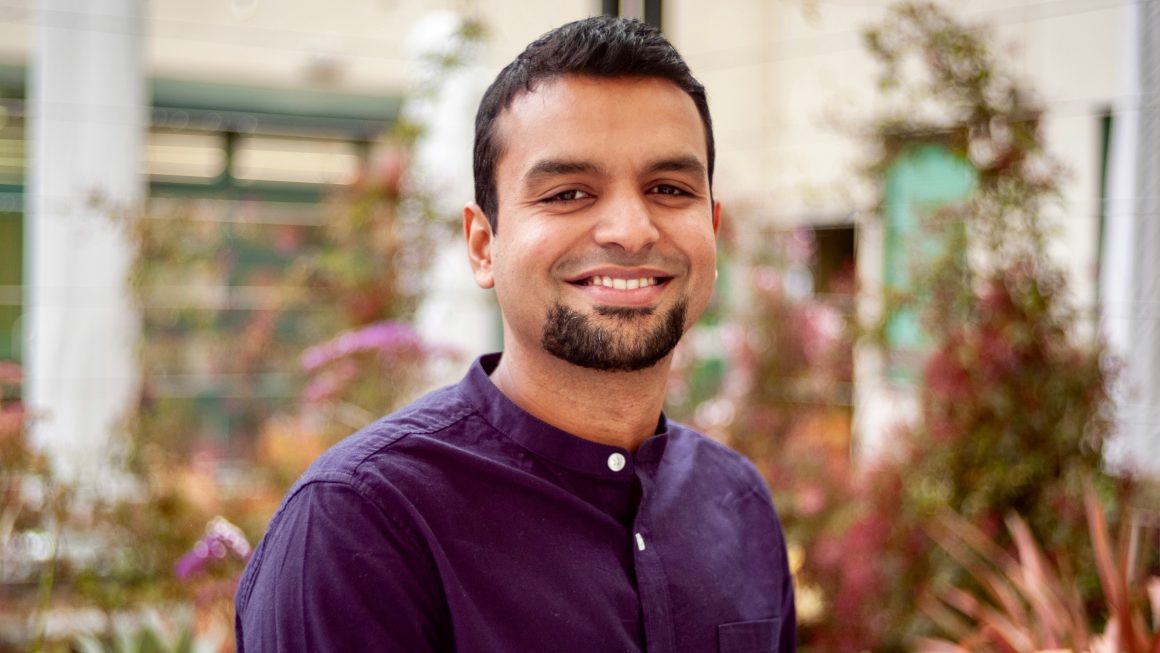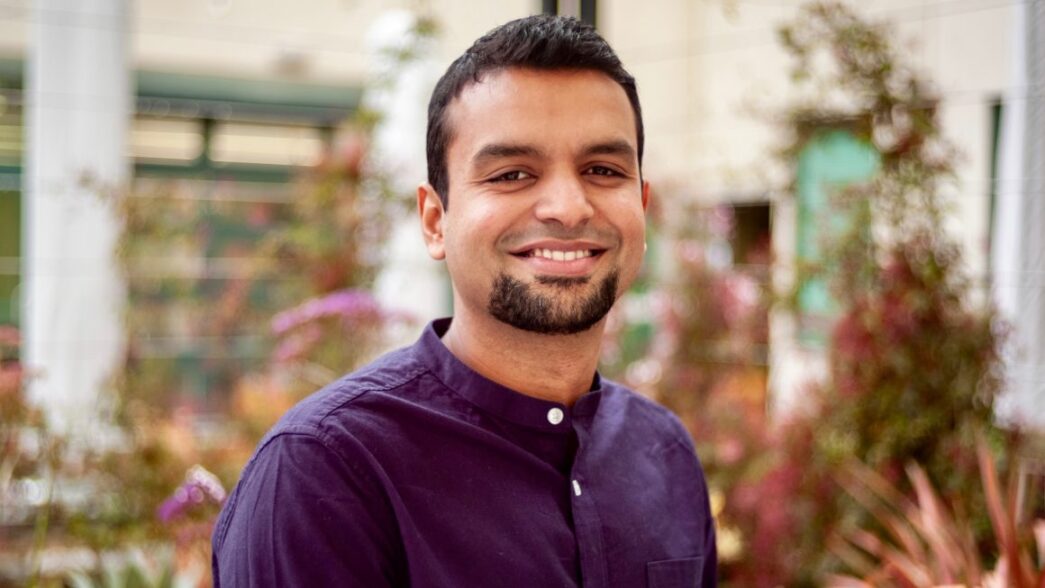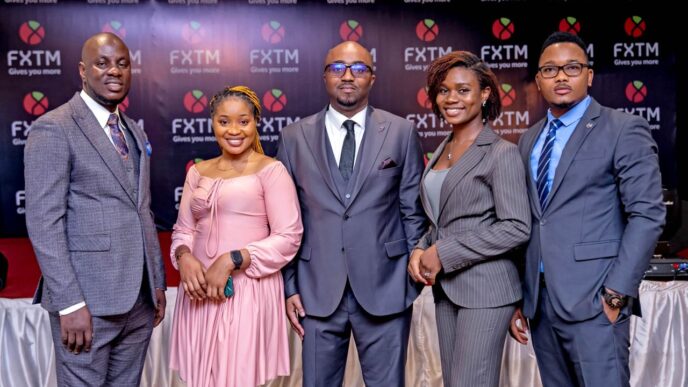As a partner at Flourish Venture, Ameya Upadhyay invests in disruptive organisations that create economic opportunities for people in emerging markets, focusing on Africa, and operates from Flourish’s London office.
Keen on creating a better financial system in Africa, Upadhyay spoke with TheCable’s DESMOND OKON on emerging trends within the African ecosystem that promote financial sustainability, and how startups can leverage their agility to navigate economic uncertainty.
TheCable: What are your investment projections in Africa in the next five years?
Upadhyay: Our reason for existing and our goal is to improve the financial health of individuals and businesses. What that means, in simple terms, is that we want to make sure that people can manage their financial lives and their money better.
Advertisement
That could be through saving for a rainy day, taking out insurance to protect against downside risks, or managing day-to-day cash flow — something that people who are on salaries do not have to think about. But many entrepreneurs do, and that is the eventual goal. That is the mandate for which the fund exists, and we achieve that by investing in early-stage companies that are working towards that goal.
So, we will invest across the gamut of what is called fintech, but our definition of fintech is broader. So, companies that traditionally provide credit, payment services, and wealth management are all within our mandate. But even companies that may not be within the traditional definition of fintech but help people manage their money better are within our mandate.
In doing all of this, we want to invest in companies that are first movers in their segment, in their country, so that not only are they successful in their own right, but they create a blueprint, a demonstration effect that others can follow. And so, that moves the entire sector forward. We are interested in our portfolio succeeding, of course. But even more importantly, we are interested in our portfolio demonstrating something that others can follow. If you look at our investments in Africa, most of our companies are first movers in their segments. We invested in Flutterwave as a payment processor, just when payment processing in Nigeria was being migrated to fintechs.
Advertisement
We invested in Fair Money in Nigeria, which was among the first digital lenders and so on. But that is the operating model of the business and why flourish exists. We are not a fund. We are an evergreen investment vehicle. What that means is that all of our capital comes from Pierre Omidyar, who is the founder of eBay and the structure allows us to have a permanent base of capital. So, we can be more flexible as investors because we are not subject to the same pressures that fund managers have. We can stay invested for longer and support founders in unique ways that are not available to other funds and within this operating model, we have a portfolio of about 75 to 80 companies across the US Latin America, India, Southeast Asia and Africa. So, we are a global fund, and we have about $850 million of assets under management.
Our operating model is to invest in two or three companies in each region and to take very active roles. So, I expect to invest in two, three, or four companies in Africa over the next two, or three years and we invest anywhere between $1 million to $7 million as a first check but those are not hard limits. We can flex up if we have a lot of conviction in a company or we can even do a smaller amount if that is most beneficial to the company. In all of this, it is a founder’s first lens.
TheCable: Flourish Ventures says it “operates a founder’s wellbeing approach”. What does that really entail, and why is that important for you as an investment firm?
Upadhyay: We have a strong conviction that resilient founders run successful businesses, and this is a self-evident truth to us. If you look at today’s market, especially in Africa, with all the macroeconomic headwinds, founders are under a lot of pressure. We need to ensure, as investors, that we are interacting with them as human beings. We understand the immense pressures they are under and support them as individuals and not just as CEOs of companies.
Advertisement
That is the founding belief on which this mental well-being and founder wellbeing thesis is based, and we do several things to support founder wellbeing, from running founder circles to creating peer-to-peer networks, and most importantly, showing up on boards and with founders and engaging with them as human beings.
One thing I would like to just leave with you is what we need to do to understand the current situation, and we need some data for that. So, we are running a comprehensive survey on founder wellbeing in Africa, across four countries, which includes Nigeria. It is an anonymous survey that founders take under five minutes to fill and when we have a baseline, then we can actually have a conversation. Otherwise, it is just talking in the air and that does not go far.
TheCable: You’ve led many firms that promote financial inclusion, and it is interesting to know that your fund has footprints in one of the most important fintechs out of Nigeria. So, when you look at the Nigerian economy from a financial inclusion prism, how well has the country performed?
Upadhyay: I would say I give very high marks to Nigeria as a country for financial inclusion, and the reason is the following: Number one, if you look at the number of BVNs, which is probably the best proxy for unique bank accounts, it is about 55 to 60 million, and that has grown dramatically from 30 to 35 million maybe three or four years ago, and it is not an exact match between BVNs and bank accounts. But you can see that a lot more individuals in Nigeria have bank accounts now than before, and I think that is concrete progress.
Advertisement
Number two, in terms of payment infrastructure, which is the backbone of any financial institution, Nigeria has done extremely well. To give you one example, I think the NIBSS instant payment system, NIPS, which is an account-to-account transfer infrastructure, is world-class, and I say that as someone who has invested in India for a long time and has seen the much-stated unified payment infrastructure in India. So, I think a lot of progress has been made, but I also think a lot of distance needs to be covered. I can point out two things there. One is that it is good for people to have bank accounts, but they need to be able to access financial tools for those accounts.
So, the number of Nigerians out of this 55/60 million people who have bank accounts that actually get loans from the banks is very, very low. It is in single-digit millions. That is just one example of how we need to layer on this financial inclusion — more products that build real financial health, not just inclusion.
Advertisement
The second is that there needs to be continued investment in infrastructure. Today, if you go to a POS machine and present your card, there is a one in six chance that the card does not work, something failed and that is because the switching at the back end is still not up to the task. That is the reason why we invested in Zone, which is retooling the switch at the back. Anyway, all of this is to say that I think we need to move beyond accounts to more financial products, and infrastructure needs to be a continued area of investment.
TheCable: So, that brings me to the question of what innovation we should be looking at now to support the desired level of financial inclusion
Advertisement
Ameya: I will add one more thing to the two points I mentioned. There is this trend of young and growing businesses digitising in Nigeria and broadly in Africa, and we find this trend very exciting. One area of focus for us (and I think it should be for Fintech investors) is how we help these businesses digitise and get financial tools. What am I talking about? How can you help a business accept payments from their customers, reconcile their invoices, make sure the payables go on time, have their accounting system hooked up with the tax system, and allow them to make cross-border payments? All of these issues that businesses face as they digitise need to be solved and we will be one of the frontiers of financial innovation in Nigeria and Africa broadly.
TheCable: The world has witnessed many economic shocks in recent times. The COVID-19, the Russian-Ukraine war, and now we are having conflict in the Middle East. How can African startups leverage their agility and resourcefulness to navigate economic uncertainty?
Advertisement
Ameya: The first thing to recognise is that African startups face far bigger challenges than their global counterparts and this needs to be recognised. Why? Because of the macroeconomic shocks that Africa has experienced over the last six to eight to 12 months, I feel we are bigger. If you look at the big investment markets, two of the biggest investment markets, Egypt and Nigeria, have experienced massive depreciation and runaway inflation. So, this goes back to my founder-wellbeing point: we need to recognise how much stress founders are under for things that are not in their control.
Now, I think there are positive signs. I feel two contributing factors to this crisis were negative real interest rates and overvalued currencies. What we have seen in both Nigeria and Egypt, for example, is that interest rates have been hiked up, so they are not negative anymore and currencies have been devalued. So, now they are closer to their real value so we are starting to see dollars flow in and we are starting to see light at the end of the tunnel in macroeconomic terms.
The most important thing that founders should focus on is making sure that their costs are in check and that they can move towards a positive contribution margin as quickly as possible; which means that their revenues are covering their variable costs and can show that those contribution margins can cover fixed costs and they can move towards break-even very fast because it is very difficult to go and raise funds in the market right now.
TheCable: Could you spotlight some of those emerging trends within the African ecosystem that address local needs and promote financial sustainability?
Ameya: One big trend is businesses digitising and that will improve their efficiency, help them hire more people, and also promote financial inclusion. The second one is several large countries in Africa emerging from a macroeconomic crisis into a place where there will be more stable economies. Finally, I think that the tide is turning for funding in Africa.
TheCable: Speaking of funding, why are fintechs not really paying attention to the stock market, especially in Nigeria, in terms of raising funds and getting more investors?
Ameya: I think it is a question of stage. A lot of these companies are not at a stage where they can list on an exchange. This question is often raised, why are we not seeing more exits from African tech companies, including fintechs? And my answer to the question is that we have not been investing long enough. VC (venture capital) investing in Africa kicked off in truth in 2016/2017 in my humble opinion, and we just took 7/8 years down the line.
This is still ‘Africa fund one’ and we are still on the investing horizon.
So, to answer your question directly, the reason a lot of companies are not tapping into the Nigerian stock exchange is because they are too early. I do expect them to do that as they get more mature. However, they are tapping into the debt capital markets, and that is such an encouraging trend.
A live example from our portfolio is FairMoney. FairMoney used to take dollar debt from outside, which also exposed them to exchange rate fluctuations. Now, they are raising local, Nigerian bonds, and they are extremely successful. This is a win-win for everyone because they get local currency and are not subject to exchange rate fluctuations. But at the same time, Nigerian investors get to benefit from the returns that Nigerian startups are generating. It is not going out of the country.
TheCable: Highlight some of those challenges confronting African-led tech innovations and what you think is the way out.
Ameya: I already highlighted a big one, macroeconomic conditions. That is a long-term structural challenge, but the economies are doing what they can; that is number one. Number two, talent is always a problem in many of these African markets, and it is not like the talent is not there. You have very talented engineers in Nigeria, but they are working for Google. As startups, become a viable career path for engineers. That will only happen when we have successful startups. That is when an engineer can say to their family, ‘I have this off from Google, I am not joining it. I think I have a brighter career option at FairMoney. Finally, I think that regulations are a big challenge, and this is a pet peeve of mine. Let us talk about Nigeria. For example, the CBN has done a lot to promote financial innovation, but at the same time, there have been setbacks.
I wish that the regulations are more or less idiosyncratic — there is more predictability. For example, recently there was a 0.5 per cent cybersecurity charge that has now been revoked, and there are so many of these shocks, and what that does is scare global investors.
The fact that something like that could happen without consultation is already raising the risk profile of Nigerian startups, which is making the conversations these founders are having with global funds difficult. I am not saying that the regulator needs to change course; it is not within my rights to say that. All I am saying is that things are more predictable, circulars are issued for consultation before finalising and there is more predictability and less volatility in regulations.
TheCable: There seem to be so many fintechs in Nigeria with nearly similar offerings. A lot of them focus on the financial sector and are doing the same thing. Why is this so and what other viable areas do you think tech innovations should be looking at?
Ameya: The reason that you see more fintech companies is that (that is also true globally)… if you look at the global VC landscape, a large majority of the capital goes to fintech startups, and the reason is the following: anywhere where there is value exchanged is a market for a fintech. So, they often provide the backbone for any other commerce, the payment rails, etc.
The reality is that a lot of these fintechs are also chasing where the money is going. So, if you are an entrepreneur, you are thinking about where you should spend your time. Where is there a reasonable chance to get the capital to grow my business? You will look at the numbers and say, ‘okay, fintech looks like it’ and the cycle feeds on itself.
I think that is the reason why there are more fintech startups. I don’t think that is necessarily a bad thing or an unnatural thing. The fact is that we need to move on and support other startups but that needs to be done at an earlier stage than Flourish works to create that pipeline.
In fact, this is why we have launched a fund called the ‘Madica’. It is short for ‘made in Africa’ and we are investing $200,000 in very young startups that are working in sectors that are more frontier. We are investing in deep tech, we are investing in B2B and we are investing in e-commerce marketplaces and sectors that other investors do not invest in.
We invest $200,000 and we also create an investment programme to help founders scale the business and give them mentorship support and all of the other tools they need to succeed. That is our small contribution to this problem and I would love to see more people at an early stage investing outside fintech which would create the pipeline for series A investors like us to branch out.
Add a comment











